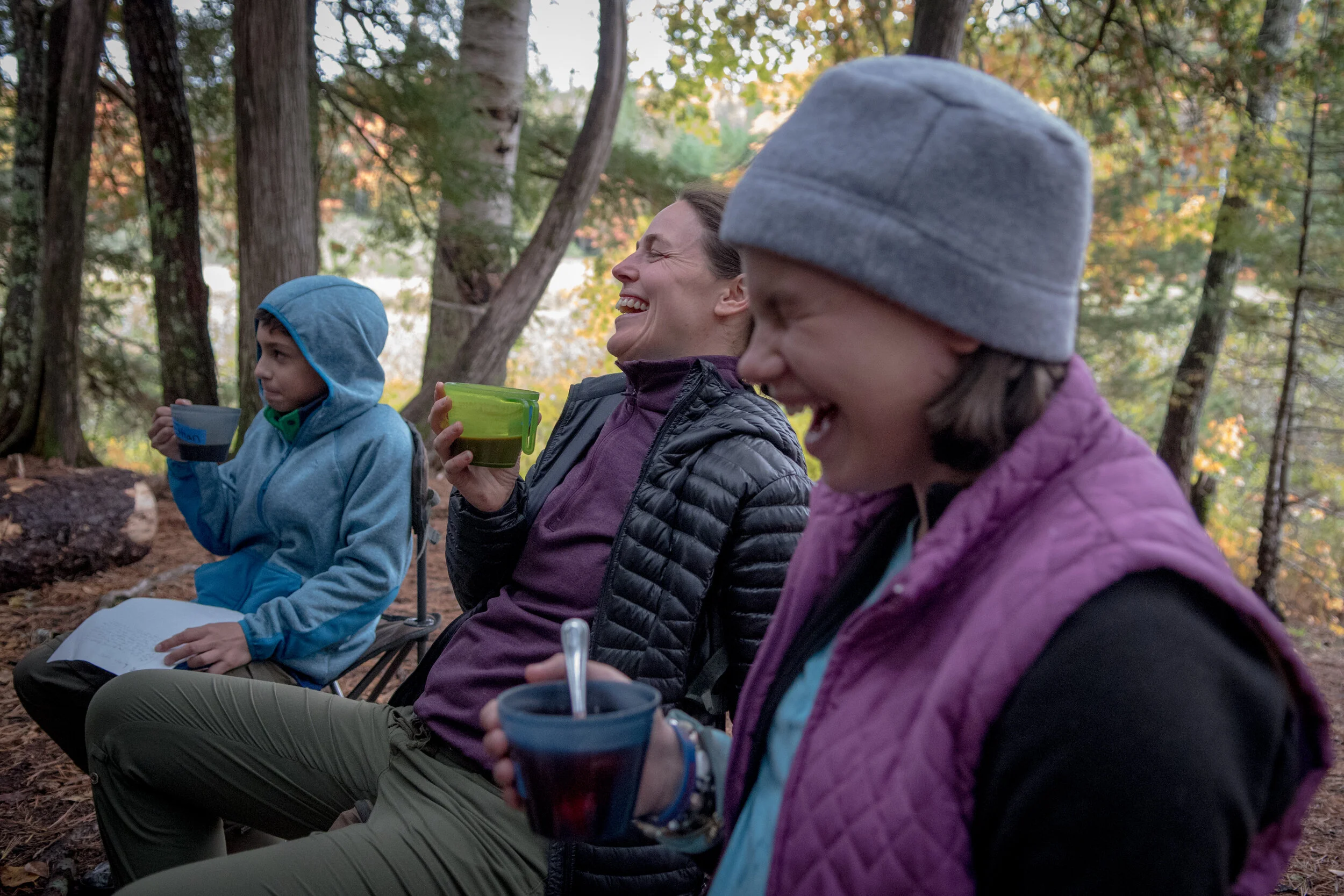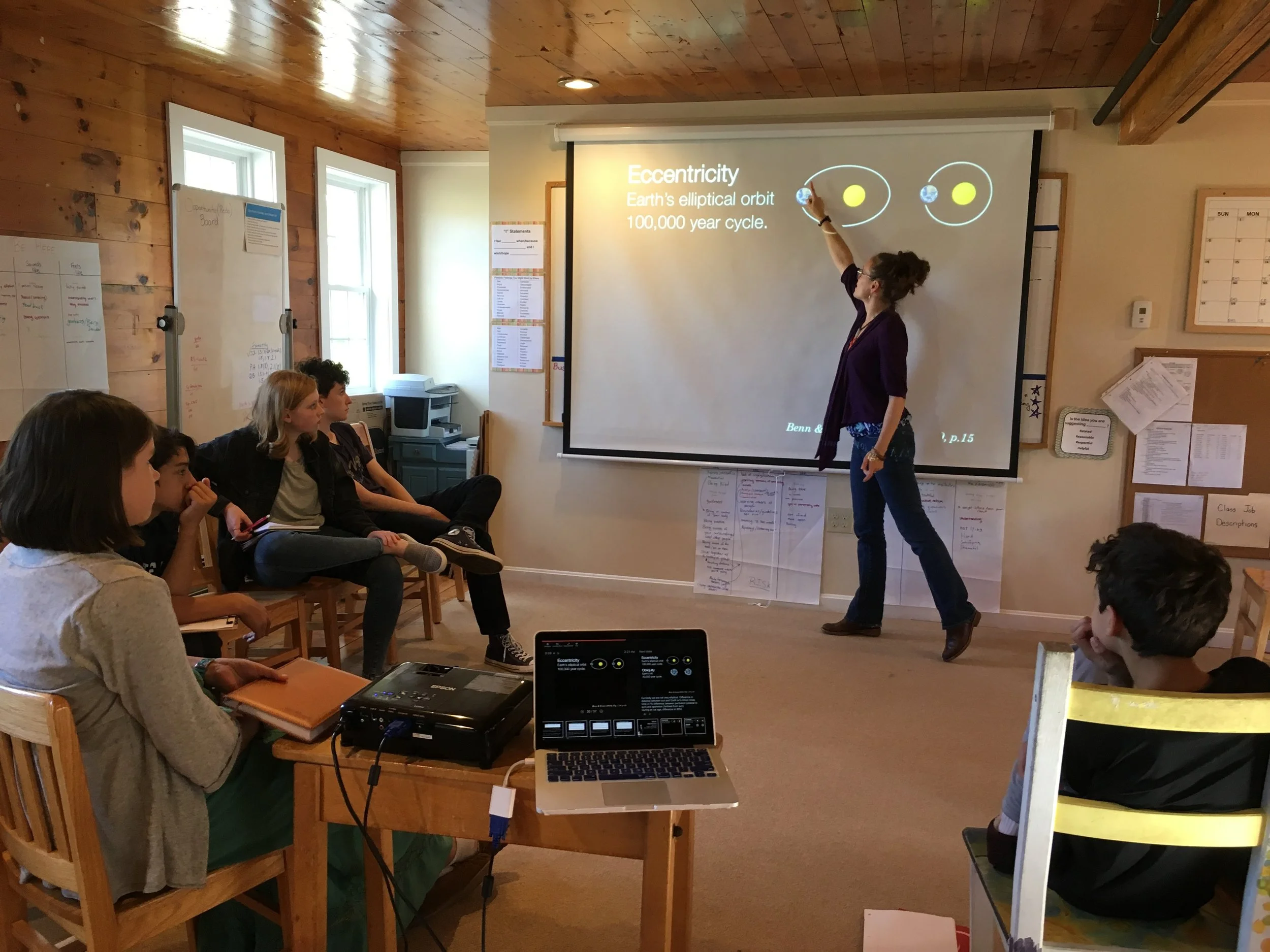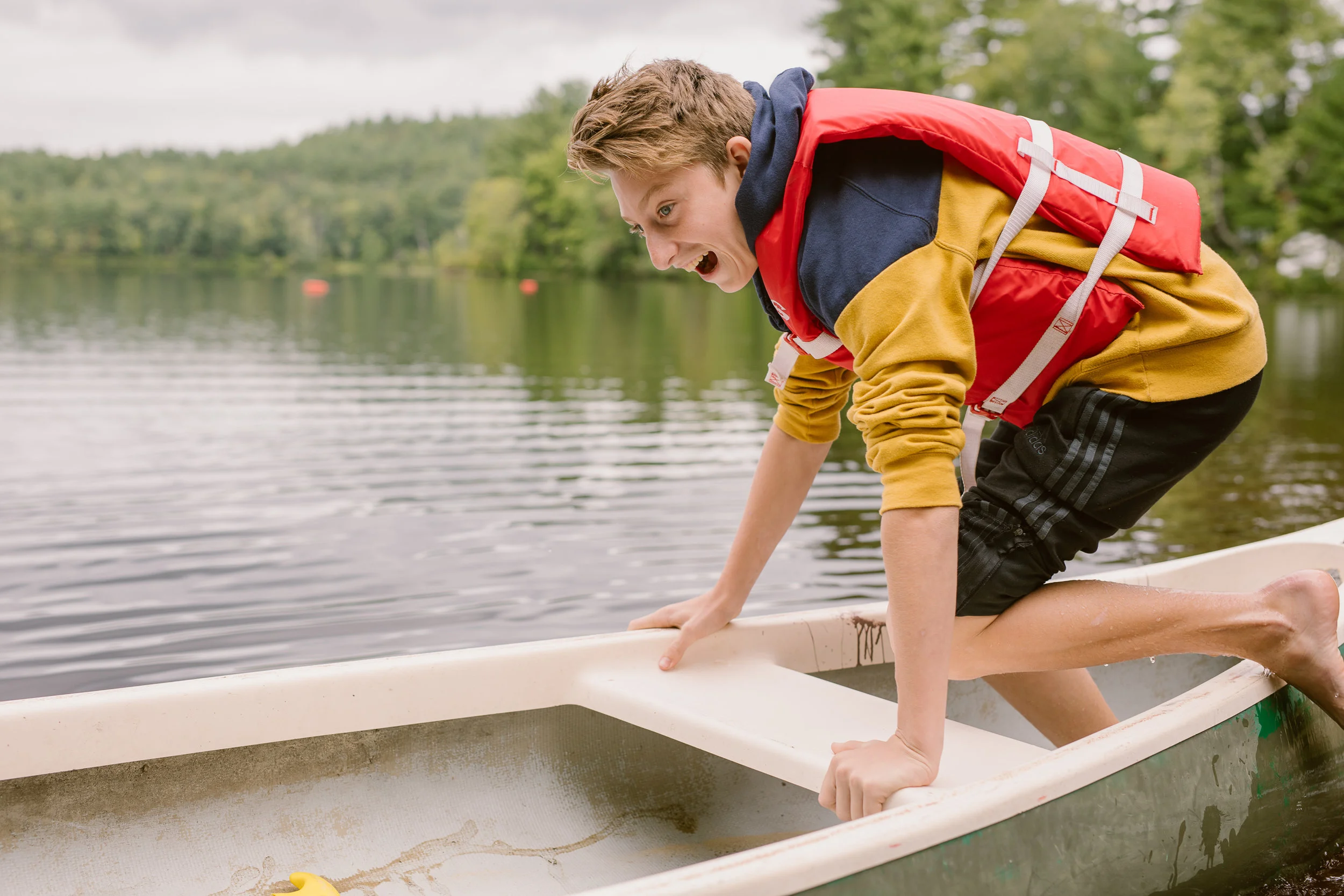Beyond intellectual development, the Upper School guides students to become active citizens and fully informed problem solvers within the Hollis Montessori community and beyond.
What makes Middle School at Hollis Montessori different? We asked the teachers in our Adolescent Program (we call them Guides) to describe it for you.
Classroom subjects are explored in an integrated manner, where students grapple with real-world issues while honing their skills in math, economics, science, humanities, language and writing. The focus is upon the development of a successful process and innovative approach, rather than rewarding an expected answer.
History, Science, Social Studies, and English are studied in an integrated way through what we call “Earth and Human Studies”. In each of our three terms a central theme is chosen to explore in depth. This theme is considered through a wide variety of lenses: scientifically (biology, chemistry, physics, Earth sciences) historically, sociologically, culturally (literature, the arts, religion), morally/philosophically. At the end of each term, each student researches, writes, illustrates and presents a major independent project based on a topic related to the overarching theme.
Algebra and Geometry are taught seminar-style — students and teachers together around a table. Students take turns solving problems on the board and discussions abound. Our curriculum is based on the Phillips Exeter Academy’s Mathematics course, augmented with hands-on projects that require practical application of concepts.
Students run their own business, marketing products such as apple cider, candies, stationery, and honey. Supporting lessons are given: scientific (how do bees make honey?), historical (how long have humans been keeping bees?), economic (what factors does one need to consider when pricing a jar of honey?), practical (how to use a hammer so as to effectively build a bee hive), organizational (division of labor; step-by-step planning) and social (negotiation; how to effectively resolve conflicts with co-workers or customers). Student work includes bookkeeping, budgeting and purchasing, design, advertising, surveys, research, the writing of proposals, interviews of experts, and documentation.
Students pursue artistic skills that enable them to express their understanding of the world. Activities such as drawing, painting, photography, fiber arts, glass blowing and drama allow students to develop their abilities to explore and share their interior lives.
There are plenty of opportunities for students to develop physical skills and play. Activities such as rock climbing, canoeing, tennis, running, hiking, bicycling, speedball and other group games, help develop agility and strength, as well as a sense of fun and confidence in the meeting of physical challenges.
Research studies have shown that high skill, high challenge, motivation, and intrinsic motivation (all qualities found to be highest in Montessori students) predict superior talent development in adolescent students.
Our graduates tell us that they are well prepared for the rigors of high school and college. They are capable, confident, and compassionate young adults.
Our beautiful campus comes alive in this five-minute video. Learn what makes Hollis Montessori School an investment in your child's future.









